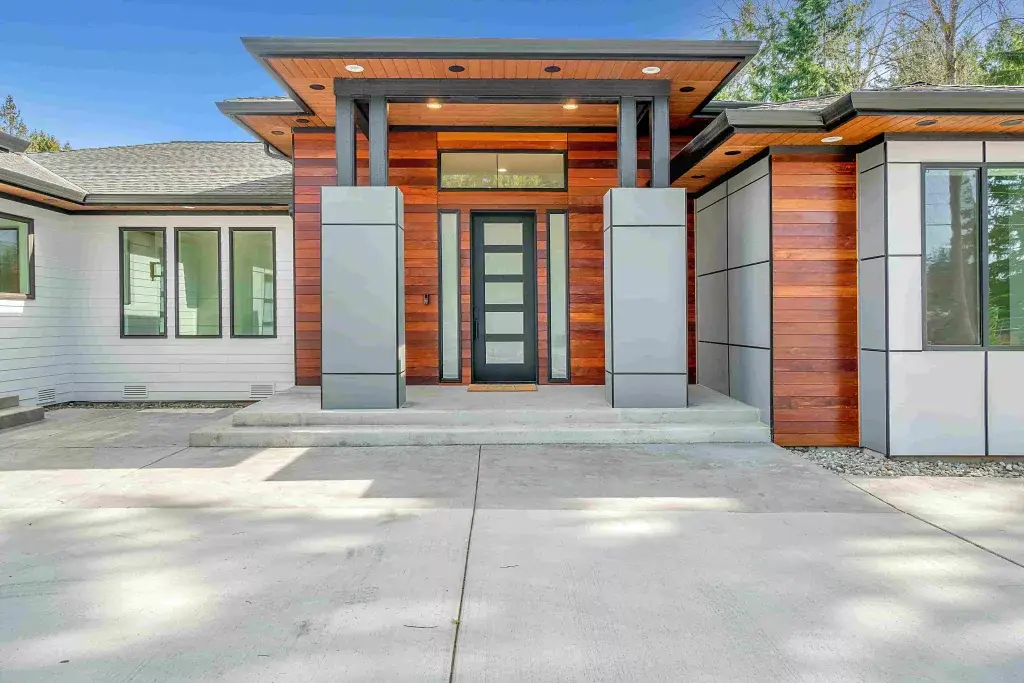As your future Chicago mortgage attorney, I can tell you that a conventional mortgage loan is a type of loan that meets the requirements set by Fannie Mae or Freddie Mac. These two government-sponsored enterprises buy mortgages from lenders and then sell them to investors. This allows lenders to free up funds, so they can offer more mortgages to higher-qualified buyers.
On the other hand, a government-backed Federal Housing Administration (FHA) loan is a type of mortgage that is insured by the federal government. These loans are intended to help low-to-moderate-income borrowers who may not meet the credit score requirements for conventional loans. Because the government is providing insurance for the loan, lenders are more willing to offer these loans to borrowers with lower credit scores and smaller down payments. FHA loans have more flexible credit requirements and lower down payment requirements than conventional loans, but they also come with additional mortgage insurance fees. The FHA sets loan limits for these loans based on the median home prices in a given area. Your mortgage attorney can help double-check your lender to see if you qualify.
Another type of non-conforming mortgage is a jumbo loan. We’ll get to those. This type of loan exceeds the limits of a conforming loan. If you are buying an expensive property, you’ll probably get a jumbo loan.
Although there are different sets of guidelines for conventional loans, they generally have stricter credit requirements than government-backed loans such as FHA loans. It’s important to note that different lenders may have different credit score requirements for conventional loans, but a good credit score is generally necessary to obtain a conventional loan.
Great Advice for Buying a House, Free Consultation
Table of Contents
Tell Us About Your Dream Home
Conventional Loans Considered
As a Chicago mortgage attorney, I’m here to explain why a conventional loan may be the right choice for your home-buying needs. Conventional loans have strict requirements that are based on your personal situation and the type of loan or property you’re getting. However, first-time home buyers may qualify for a conventional mortgage with a down payment as low as 3%. If you’re not a first-time home buyer or you make no more than 80% of the median income in your area, the down payment requirement is 5%. If the house you’re buying is not a single-family home or if you’re buying a second home, you’ll need to put down a higher percentage of the purchase price. Additionally, if you’re getting an adjustable-rate mortgage, the minimum down payment requirement is 5%.
Mortgage Insurance (PMI) and Why You Don’t want to Pay It
If you put down less than 20% on a conventional loan, you’ll need to pay for private mortgage insurance (PMI) which protects your mortgage investors in case you don’t pay. The cost of PMI varies based on your loan type, credit score, and the size of your down payment. You can remove it once you reach 20% equity in the home. But, it’s expensive until then.
Down payment and PMI aren’t the only requirements to qualify for a conventional loan. Your credit score should be at least 620, and your debt-to-income ratio (DTI) should be 50% or lower. Your loan must fall within the loan limits set by Fannie Mae and Freddie Mac, with the conforming loan limit for a single-family home being $726,200 in 2022. If you’re interested in buying a home in Chicago, please visit the Federal Housing Finance Agency website to see loan limits for your area.
By meeting these requirements, you may be able to secure a conventional loan with competitive interest rates, and it may be a more affordable option in the long run. As a mortgage attorney, I can help you understand the process and assist you in choosing the right loan for your situation.

Conventional Loans vs VA in Chicago
As a Chicago Mortgage Attorney, it’s important to know that conventional loans have strict credit requirements that might not work for everyone. If you’re a veteran or a surviving spouse, a VA (Veteran’s Affairs) loan is a good option to consider. VA loans offer a lot of great benefits such as:
- No Downpayment Requirements: Having no down payment requirement on a mortgage, such as with a VA loan, is great for homebuyers who may not have the money for a large down payment. A down payment is typically required to secure a mortgage. It can be a significant financial burden, especially for first-time homebuyers. VA loans make it easier for veterans and their spouses to purchase a home without having to save up. This frees up the savings they do have to cover other important expenses like moving or fixing the new home. However, low down payments can also result in higher monthly payments because more money is financed. In some cases, it even means a longer term for the mortgage, which can mean paying more interest over time. Your Chicago mortgage attorney can figure this out for you.
- No Mortgage Insurance: Mortgage Insurance, also known as Private Mortgage Insurance (PMI), is typically required if a homebuyer puts down less than 20% of the home’s purchase price as a down payment. The purpose of PMI is to protect the lender in case the homebuyer defaults on their loan. Homebuyers don’t like PMI because it is an additional cost on top of their monthly mortgage payment. It doesn’t provide any benefit to you – the homeowner. Once you have 20% equity in their home, you can request to have PMI removed. But until then, you will be required to pay the monthly premium. If a homebuyer can make a 20% down payment, they can avoid paying PMI altogether. This can save them hundreds of dollars per month on your mortgage payment, a big difference in their overall budget! Remember, it does come with a higher upfront cost.
VA Loans vs FHA Loans and USDA Loans from a Chicago Mortgage Attorney’s Perspective
But, if you’re not a veteran or a surviving spouse, an FHA loan might be a better option for you. FHA loans have lower credit score requirements, and you can get approved for a loan with a credit score as low as 500 with a minimum down payment of 10%. If you put less than 10% down on an FHA loan, you’ll have to pay mortgage insurance for the life of the loan. We already spoke about how expensive that might be.
USDA loans are another alternative option to conventional loans. They can only be used to purchase properties in qualifying rural areas, but they offer affordable rates compared to other loan options. USDA loans have no maximum income, but they have income limits that vary based on the city and state where you’re buying the home. These loans also require borrowers to pay a guarantee fee, which is similar to PMI, but usually more affordable. There aren’t many rural areas around Chicago that qualify for a USDA loan, but these loans are usually the best loans your Chicago Mortgage Attorney can recommend when they’re available.
FHA Updates from a Chicago Mortgage Attorney
At least procedurally, FHA is trying to help buyers and sellers comply with its guidelines during lockdowns. Here, we did see some flexibility from the Federal Housing Finance Authority. Now, they are stating they will:
- Allow desktop appraisals on new construction loans
- Give borrowers/buyers the opportunity to provide documentation (rather than requiring an inspection) to allow draws
- Permit flexibility on demonstrating completion of construction or repairs (as an alternative to the Completion Report)
- Expand the use of power of attorney, remote closings, and remote online notarizations
Altogether, this is quite the step into the 21st century for FHA. Traditionally, FHA was very difficult to deal with. It would require “with my own eyes” and “hands-on” assessments of everything in the transaction. Now, while FHA is still a devil for details, the agency certainly allows a bit more ease of use. This could make things much less frustrating for buyers with a 649-700 FICO score to find a great deal at a great rate.

How can a Chicago Mortgage Attorney Help Me Qualify for the Mortgage I Want?
Looking to buy a new home, but not sure if you can qualify for the mortgage you need? As a Chicago mortgage attorney, I know that the process can be intimidating. However, with careful preparation and the right guidance, you can qualify for your dream home. We borrowed some help from the Motley Fool website in helping advise our clients here.
Working on Your Credit Score
The first step is to check your credit score. Your credit score (FICO score) is one of the most important factors that lenders consider when evaluating your mortgage application.
Your FICO score is based on your credit history and reflects your likelihood to repay your debts on time. Lenders use your FICO score to assess the risk of lending you money. A high FICO score indicates that you are a low-risk borrower who is likely to pay on time. This can lead to better interest rates and more favorable loan terms. On the other hand, a low FICO score can make it more difficult to qualify for loans or credit cards. Low scores may result in higher interest rates or unfavorable terms. Your score goes up if you aren’t tapped out on debt, pay bills on time, and show financial responsibility. Your score goes down if you don’t have much credit history, or if you have too much delinquent debt.
It’s important to understand that your FICO score is just one factor that lenders consider when making lending decisions. Other factors, such as your income, debt-to-income ratio, and employment history, also play a role. You’ll definitely have to show your lender all of these factors. As a Chicago Mortgage Attorney, I work with lenders all day long on maximizing these factors.
If your credit score needs work, there are steps you can take to improve it. Paying down debt, making on-time payments, and disputing any errors on your credit report can all help to boost your score over time.
Debt to Income Ratio
Another important factor that lenders consider is your debt-to-income ratio (DTI). This is the percentage of your monthly income that goes towards paying off debts. To qualify for a mortgage, your DTI should be 43% or lower. If your DTI is higher than this, paying down debt or increasing your income can help you to qualify for a mortgage.
When you’re ready to apply for a mortgage, be prepared to provide documentation of your income and assets. Lenders will want to see proof of employment and income, as well as bank statements and other financial documents. Make sure to have all of these documents in order before you apply.
Finally, consider getting pre-approved for a mortgage before you start house hunting. Pre-approval is an important step that can help you stand out to sellers and show that you’re a serious buyer. It can also give you a better idea of how much house you can afford, so you can focus your search on homes that are within your budget.
As a Chicago mortgage attorney, I can help you navigate the mortgage qualification process and make sure that you’re on the right track to get the mortgage you need. Contact me today to schedule a consultation and start your journey to homeownership.
Jumbo Loans – When You’re Truly Creditworthy

A jumbo loan is a non-conforming mortgage that allows you to finance luxury properties. Jumbo loans are used to buy luxury homes or homes in high-cost areas that exceed the limits of a conforming loan. From my experience as a Chicago mortgage attorney, jumbo loans are an excellent option for those who have financial means.
One of the primary advantages of a jumbo loan is that you won’t need a larger downpayment. This is great if you have a strong financial history and want a larger loan. Additionally, jumbo loans have a competitive interest rate. They are an appealing option for those who want to buy a luxury home.
The Disadvantages of Jumbo Loans
However, there are some disadvantages to taking out a jumbo loan. One of the most significant drawbacks is the stricter qualification requirements, including higher credit scores and more significant assets. Jumbo loans also often come with higher interest rates and may require a larger down payment. It’s essential to remember that a jumbo loan may come with more stringent repayment terms than a traditional mortgage loan.
As a mortgage attorney in Chicago, I recommend you consider your financial situation and goals before applying for any loan. If you have a high income, strong credit score, and substantial assets, a jumbo loan may be an excellent option. However, it’s important to weigh the potential advantages and disadvantages of this type of loan to make an informed decision.
Great Advice for Buying a House, Free Consultation
Tell Us About Your Dream Home
Conclusion – FICO Isn’t Everything, But It’s A Lot!
The difference between being FHA and Conventional can be thousands of dollars, annually. Thehe mortgage you might qualify for is not determined solely by your FICO score. However, your FICO score is one of several factors that determines your costs. By optimizing your loan application and understanding the game, you can avoid so much money in downpayment and PMI. If you do a bit of planning, you can get a great house at an affordable price.
